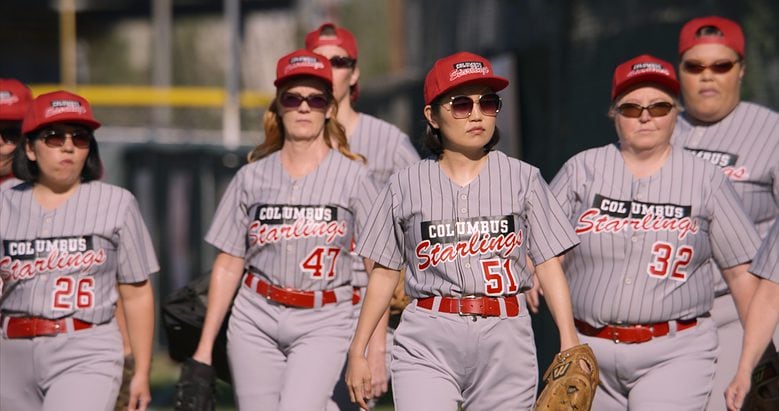 Little America, the easygoing Apple TV+ series about the immigrant experience in America, returns this week for a second season of predictably uplifting storytelling.
Little America, the easygoing Apple TV+ series about the immigrant experience in America, returns this week for a second season of predictably uplifting storytelling.
This parade of hard-luck stories features happy endings that range from gentle to ecstatic. Just like last season, the show is largely successful — if frequently too well-behaved for its own good.
Little America season two review
Season 2: Little America, one of the first of the Apple TV+ omnibus series (along with Amazing Stories), operates on a pretty ironclad premise. Each episode, culled from true stories attached to photo essays published in Epic magazine, tells of a first-generation immigrant’s struggle to find happiness in the United States.
They all must find ways to, if not “fit in,” at least make a place for themselves in new, frequently hostile, surroundings. These include a chef trying to start his own business, a former baseball dynamo who rediscovers her passion, and an amputee given a gift she doesn’t want. They’re all very well-performed and sensitively — if too rarely riskily — directed.
Little America has modest ambitions as drama and as art, aiming for tight but fashionable film grammar in service of the show’s thematic aims. What this means is that each episode is like a half-hour, Sundance-style movie. If that sounds good to you, tuck in.
Little America showrunner Siân Heder’s CODA, which debuted on Apple TV+ last year, was much the same, though that film strained much harder to be likable. The trouble with content like this is you really can’t argue with it, which doesn’t make it very interesting conceptually. If you don’t agree with any of Little America’s morality plays, you’re most likely a bad person. Which is sort of the point, but that doesn’t require much active investment from the viewer. The success is in the details.
More charming tales from the diaspora
Little America’s aims are to educate about the unique experiences of people fleeing disparate social and cultural backgrounds. The detours into, for instance, the Twin Cities’ Somali community, or a look at life in an Afghan village under Taliban control, are fascinating and welcome.
These kinds of perspectives go missing from much of American media. (Certainly it was unthinkable that we’d see a nonjudgmental portrait of Afghanis even a few years ago.) So the show’s unflinching depictions of non-white communities and the various pressures they experience in America are unfortunately going to be relevant for a very long time.
That said, I’m of two minds about the similarities between most of the stories. On the one hand, it’s important because it shows how much unites cultures as much as makes them distinct and beautiful. On the other, the writers always reach for the same uniting factor: money. Mostly it’s money.
The Belizean woman who must decide whether she wants to open her own shop, the Somali vendor who needs an eleventh-hour donation, the amputee who gets a new and expensive arm from an iffy benefactor, the Japanese woman whose husband buys her a baseball field, the Afghani pianist trying unsuccessfully to bring his mother to the states, the Sri Lankan woman trying to win a car in a horrible radio contest — all of their problems are solved by material wealth.
Everybody needs money in Little America

Photo: Apple TV+
Once more this is one of those “well, yeah…” situations. Of course everyone needs money, obsesses over money, and desperately wants what money can buy. We all do. Everyone’s broke and worried. That’s universal, as much as our love of music and food.
It does, however, speak to an unfortunate dearth of imagination as much as a horrible need from people the world over. The only one of these that kinda breaks the mold (though not really) is the story of the Russian finance drone who quits her job and becomes a DJ. Now … I don’t know about you, but if I heard that story, I wouldn’t necessarily think it had a happy ending. However, the woman on whom it’s based wrote and directed this episode. Which means it serves as its own moral.
Quit your job and become an artist — you might work for Little America someday. If only things were that simple.
Still, season two of Little America serves up some great moments that transcend the good-natured simplicity of the project. There’s a dance sequence in the Sri Lankan episode that’s positively wonderful. The sequences of the Somali kitchen staff prepping food is pretty marvelous (and lit beautifully). And for a minute, it seemed like the episode about the El Salvadorian sisters was going to be a lot weirder. But then it calmed down.
The lightweight curse of the omnibus series
The show’s strengths hint at the trouble with an omnibus show. No one is given enough time to settle into much of a setting or rhythm. The idea of a woman being given free rein over an elderly woman’s house, unable to speak her host’s language, as both a kind of object of fascination and an interloper, is the kind of thing that could make for an excellent movie, with plenty of time to flesh out the uncomfortable dynamic.
The episode we’re given, however, is just as conventional as any of the others and ends with the sisters moving in a positive direction. I like that there’s a hint that it was their willfulness that killed their employer (or anyway it remains unresolved when the credits rolled), because it steps away from the positivity of the rest of Little America. Everything is all good, though it is true that our heroes get away scot-free and move on to the next chapter of their lives.
Don’t get me wrong. It’s nice to know that real people continue to overcome the worst things America can throw at them and become successful on their own terms (except for the pianist’s mother, who still hasn’t been able to come to the states). But I can’t help but feel like a more fitting testament to these immigrants’ struggles and stories and bravery would be art you’d want to watch more than once.
★★★☆☆
Watch Little America on Apple TV+
The second season of Little America arrives on Apple TV+ this Friday.
Rated: TV-14
Watch on: Apple TV+
Scout Tafoya is a film and TV critic, director and creator of the long-running video essay series The Unloved for RogerEbert.com. He has written for The Village Voice, Film Comment, The Los Angeles Review of Books and Nylon Magazine. He is the author of Cinemaphagy: On the Psychedelic Classical Form of Tobe Hooper, the director of 25 feature films, and the director and editor of more than 300 video essays, which can be found at Patreon.com/honorszombie.
![In Little America season 2, hard luck always yields happy endings [Apple TV+ review] Little America review Apple TV+ season two: First you struggle, then everything works out. Right?](https://www.cultofmac.com/wp-content/uploads/2022/12/Little-America-season-2-review-1536x809.jpeg)

